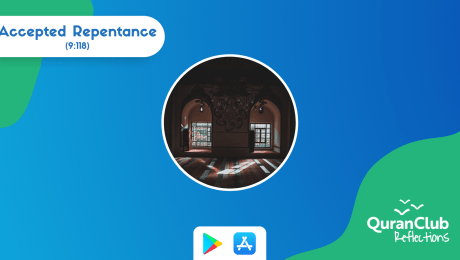(9:118) Accepted Repentance – Part 1 [EP 65]
How do you know if your repentance has been accepted? Ultimately, only Allah ﷻ knows, but the Quran hints at some of the signs on how the process work.
One example is that of the three companions of the Prophet ﷺ mentioned is surah Tawbah who absconded from the battle of Tabuk; Hilal ibn Umayyah, Murarah ibn Rabi’ah and Ka’b ibn Malik. For context; the Roman empire had assembled an army of 200,000 men to march on Madinah to eliminate the Muslims whom they viewed as a threat. In response, the Prophet ﷺ gathered an army greater than ever before, reported to be up to 30,000 men, yet their numbers, weaponry and experience still paled in comparison to their enemy.














